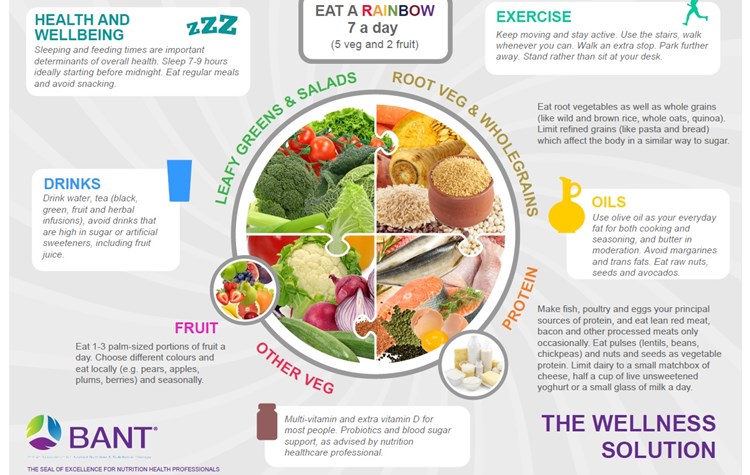
It is well-known that too much sodium can cause serious health problems. The amount of sodium that a person consumes directly correlates with their risk of suffering from hypertension and cardiovascular disease. Limiting salty snacks and reducing salt content in meals are two ways to lower sodium intake. In addition to lowering your dietary sodium intake, it is important to limit your intake of processed and fast foods. Here are some strategies to lower sodium consumption.
Increasing the amount of sodium in your bloodstream will increase your water retention. This causes blood to expand and cause it to expand. Plaque builds up in blood vessels, making them more susceptible to heart disease. Additionally, too much sodium will cause your body to feel bloated. The effects of too much sodium on your body are many, and it's important to monitor your intake to prevent serious health issues.

Too much sodium is dangerous for your health. Your body needs a certain amount of sodium to function properly, but too much can cause health problems. Studies show that high levels of sodium are linked to high blood pressure. Although sodium is vital for nerve and muscle function, and to regulate body fluids it is best to reduce your intake. It's best to keep your daily intake below 2 000 mg.
Too much sodium can not only affect the brain but also cause problems with the heart. High sodium diets in the United States are associated with increased risk for developing cardiovascular disease. The Centers for Disease Control and Prevention recommend that Americans consume no more than 1,500 milligrams of sodium per day. This should be below two thousand milligrams per person. Nonetheless, there are some foods higher in sodium than others.
Too much sodium can have adverse effects on the heart and other organs. It may actually be beneficial for your health. High blood pressure patients should restrict their sodium intake to less than 2,000mg per day. Another benefit is lower blood pressure. A reduction in salt intake can also reduce the chance of developing heart disease. This is just the beginning. If you want to enjoy the benefits of a healthy lifestyle, you must limit sodium.

The number of people who die from too much sodium intake is on the rise. High sodium levels are increasing in people with high blood sugar and heart disease. The risk of developing heart conditions can be reduced by reducing sodium intake. Salty foods should be avoided, along with processed and salty food. For instance, canned vegetables and legumes should be rinsed before consumption. You don't have to wash vegetables or legumes before you eat them. Instead, rinse them.
FAQ
What is your favorite workout to build muscle mass?
When you are building muscle mass, there are two main exercises you need to do. These are isolation exercises and compound moves. While compound movements focus on a single muscle, isolation exercises are focused on specific muscles.
The best way to improve your workouts is to choose exercises that challenge all your major muscle groups. This ensures that your sessions are challenging and you are always working hard.
To keep track of what you have done, use an app called MyFitnessPal. It allows you to log everything from calories burned to weight lifting. You can also create customized meal plans based upon your goals.
What foods should I avoid when trying lose weight?
Avoid trans fats. Trans fats can increase LDL (the negative) cholesterol levels and decrease HDL (the positive) cholesterol.
Trans fats may be found in deep-fried, fast food, packaged bake goods, snack cakes, or other processed food.
These unhealthy fats are also known to cause inflammation and lead to heart disease as well as diabetes.
Avoid eating foods that contain artificial sweeteners. Artificial sweeteners increase the risk of getting cancer.
These chemicals are used in everything from soft drinks to chewing gum to candy bars. They appear in many other foods, including meat, poultry, fish, and eggs.
Artificial sweeteners include saccharin.
The American Heart Association recommends avoiding these chemicals because they may damage DNA in cells.
Do I need to exercise every day?
No! Do at least 30 minutes of moderate intensity physical activity five days a week. This means that you should be able to walk fast enough to feel slightly out of breath, or bike hard enough to sweat.
Is it true, that too much protein can cause kidney stones?
Protein helps to maintain healthy bones, tissue, and skin. However, too much protein can result in calcium excretion through the urine. This can lead to kidney stone formation.
Not everyone who eats more than 2g of protein per kilogram (2.2 lbs) of bodyweight will get kidney stones. Some people can eat high amounts of protein without getting kidney stones.
You can prevent kidney stones by watching your sodium consumption. Sodium helps regulate water balance in the kidneys. Too much sodium can cause kidney stones.
If you have kidney stone, you might also consider reducing your protein intake. Protein provides about half of the daily caloric needs for most adults. A reduction in protein intake will likely result in weight loss.
If you do decide to eat more protein, don't go overboard. Limit your intake to 20% of your total daily protein intake.
Statistics
- 10 pounds in a month is likely during a lean bulking phase, especially for beginners. (muscleandstrength.com)
- By John Thompson Take a whopping 38% off a set of PowerBlock Pros. (menshealth.com)
- An estimated calorie range for moderately active adult males falls between 2,200 to 2,800 calories per day, depending on age. (eatright.org)
- Candidates and applicants must pass all four tests at 70% (minimum level) to graduate from Basic Deputy U.S. Marshal (BDUSM) Training. (usmarshals.gov)
- The PRS enabled risk stratification for overall prostate cancer and lethal disease with a four-fold difference between men in the highest and lowest quartiles (HR, 4.32; 95% confidence interval [CI], 3.16-5.89). (pubmed.ncbi.nlm.nih.gov)
External Links
How To
What should I eat before going to the gym?
For weight loss, you should eat fewer calories per day than you burn during exercise. All your nutrients must be consumed.
This includes protein and carbohydrates as well as fats, vitamins, and minerals.
The best way to do this is by eating smaller meals throughout the day rather than three large ones.
You might perform less well if you're too hungry while working out.
Instead of drinking energy drinks that are high in sugar and caffeine, you could drink water. This will keep your body hydrated and energized.
However, make sure you are consuming enough fluids. Your electrolytes could be diluted if you drink excessive water.
For proper functioning of your body, electrolytes are necessary.
If you don’t have any access to water, sports drinks might be a good option. They are high in potassium, sodium, calcium, magnesium and other minerals.
This helps replenish electrolytes that have been lost. However, these won't replace any electrolytes that you might have lost from sweating.
A multivitamin pill can be taken if you worry about losing too much salt while exercising.
These have extra vitamin B6 that helps regulate sodium levels in your body.
You shouldn't depend on supplements if there isn't enough salt in the food or drinks you consume.
They aren’t controlled by the Food and Drug Administration.
Sports drinks, for example, can have higher sodium levels than others.
Sports drinks can contain artificial sweeteners and preservatives. These additives could cause digestive issues.
If you are concerned about over-salting, you can use sea salt.
It contains fewer chemicals that table salt.
Sea salt also has low levels of iodine which is another mineral that is essential for healthy thyroid function.